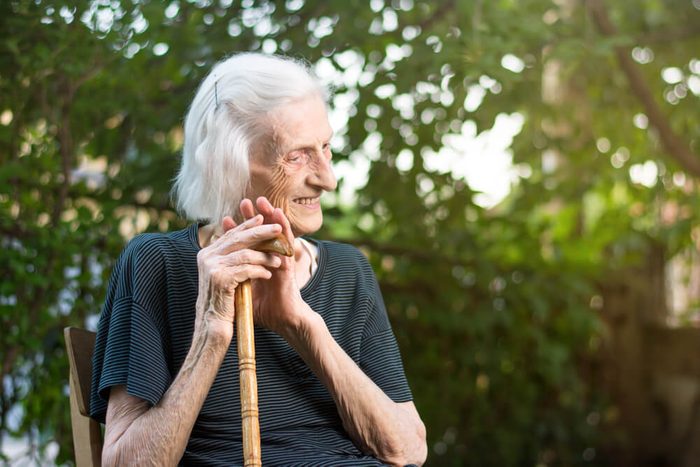
Why early detection matters
With grim prognoses and very limited treatments for Alzheimer’s disease, early detection may not seem particularly advantageous. But that may be changing. One area of Alzheimer’s research involves treating people who exhibit early signs of Alzheimer’s with drugs that may decrease the production of amyloid beta (proteins that bunch together to form damaging plaques in the brain). Experts believe that people begin to develop amyloid plaques in their brains at least 10 years before they develop any obvious Alzheimer’s symptoms.
Reisa Sperling, MD, director of the Center for Alzheimer Research and Treatment at Brigham and Women’s Hospital in Boston, is leading a clinical trial called the A4 study, which evaluates patients with evidence of Alzheimer’s damage in the brain but who still have normal thinking and memory function. “When a person already has a lot of memory trouble, they already have significant neuron loss,” says Dr. Sperling. “We need to find and treat people much earlier.” The study, which originally launched in 2014, was extended and tweaked in 2017. For the newly modified version, researchers are testing an increased dosage of solanezumab, the antibody that targets the accumulation of amyloid in the brain, to see whether it can slow down Alzheimer’s symptoms before they become more apparent. Watch out for the following 10 early signs of Alzheimer’s disease.

Worrying about your memory
Memory issues are among the more well-known Alzheimer’s symptoms. Harvard researchers have found that people who are concerned about their own memory and thinking are, in fact, more likely to have signs of Alzheimer’s plaques in their brain and develop dementia symptoms later. The bottom line: If you think you have a problem, get yourself checked out by a medical professional. Here are 6 signs your family member’s forgetfulness is actually Alzheimer’s.

Spotty recollection of recent important events
Forgetting a key conversation with a family member or a big news story from earlier in the week (like a natural disaster such as a hurricane) is concerning—especially if people can’t remember they forgot it. “If you remember that you forgot something, like your keys, that means your brain is still trying to access that information,” says Dr. Sperling. Not being able to remember the name of an actor in a movie—but recalling it later that night or the next day—is probably not a sign of Alzheimer’s disease. Find out how this linguistic study could predict someone’s risk for developing Alzheimer’s.

Trouble managing finances
Not being able to keep track of paying bills, having difficulty transferring money among accounts, or having problems maintaining an adequate balance to cover payments can all be early red flags or Alzheimer’s symptoms, according to the National Institute on Aging. “When I talk to patients in my office, I always ask who pays the bills,” Dr. Sperling says. “If I hear that there’s been a change—say, the wife did all the bill paying, but her husband has recently taken over, that’s a concerning find.” If a loved one or family member who lives alone suddenly begins having trouble paying the bills, you may need to step in. Accounting troubles can leave a person vulnerable to fraud.

Getting lost while driving
This type of “getting lost behavior” (GLB) is especially relevant if the person gets confused or disoriented in a place where they’ve driven many times—for example, if they had to take a slightly different route home from a local store and had trouble getting back to a familiar destination. One study published in the journal Frontiers in Medicine in 2017 linked GLB and poor working memory in patients with mild Alzheimer’s disease, while another published in the Journal of Alzheimer’s Disease found that difficulty using a map was also an early indicator of Alzheimer’s. Find out the real difference between dementia and Alzheimer’s.

Skipping social events
“We’ve seen that difficulty following conversations, particularly in a group, can be an early sign of Alzheimer’s,” says Dr. Sperling. She explains that patients with early signs of Alzheimer’s report that they don’t like to go out to lunch as much with their friends as they used to because they feel that they aren’t picking up on the jokes or following the conversation.

Losing interest in favorite hobbies
Another potential early signal of Alzheimer’s is when people start to lose interest in their favorite pastimes—a golfer or bridge player who foregoes his weekly game, for example. “Alzheimer’s-related brain changes can cause apathy, which makes people lose motivation,” says Dr. Sperling. These Alzheimer’s symptoms may also mimic depression. “If a patient has never had depression before or has no obvious reason for being depressed, such as grief over the loss of a loved one, that’s concerning,” she adds. These are the 15 things neurologists do to prevent Alzheimer’s disease.

An inability to plan
People in the early stages of Alzheimer’s disease have changes in their ability to plan or multitask, brain skills that fall under the category of executive function, according to the Alzheimer’s Association. For example, when someone who is usually the person who plans all the holiday parties or family vacations begins to have trouble organizing, or even has trouble with day-to-day schedules, that’s cause for concern. This is everything you need to know about each stage of Alzheimer’s Disease.

Trouble sleeping
Nighttime tossing and turning that leaves you exhausted the next morning could be a sign of more than stress. While earlier studies have shown that people who have markers for Alzheimer’s report more difficulty falling asleep and more daytime tiredness, newer ones have shown even more issues: One study published in JAMA Neurology in 2018, for example, found that disrupted circadian patterns, characterized by a slightly “off” sleeping and waking cycle, can be an early sign of Alzheimer’s. Of course, many sleep issues aren’t linked to Alzheimer’s, but check with your doctor if yours are paired with lapses in memory. Here are 15 myths about Alzheimer’s disease you should stop believing.

Symptoms of anxiety and depression
Studies have indicated that symptoms of depression and anxiety could be early signs of Alzheimer’s, but researchers weren’t sure whether they were risk factors or a result of the condition. One five-year study in the American Journal of Psychiatry could shed some light, though: The researchers found more amyloid beta—the protein that builds the plaques found in brains of people with Alzheimer’s—in cognitively healthy adults who had increasing anxiety.

Trouble with speaking and writing words
People with early signs of Alzheimer’s disease struggle with finding the right words in conversation and on paper, according to the Alzheimer’s Association. These people may stop mid-conversation to find the right words. They could also struggle with vocabulary or repeat themselves. Make sure you know these 16 everyday habits that can seriously increase your dementia risk.

What to do if this sounds like you
If you’re experiencing any of these symptoms, especially in conjunction with memory loss, you should see your doctor. For starters, it may not even be Alzheimer’s but, instead, another treatable illness. But if it is Alzheimer’s, early detection is important for a number of reasons: It gives you the ability to get medication that could lessen or slow symptoms of Alzheimer’s like memory loss and confusion; it gives you the option of participating in clinical trials; it lets you make lifestyle changes that may benefit cognitive function; and it also can help you stay safe and plan for the future. Check out these 50 habits that can reduce your risk of Alzheimer’s.
